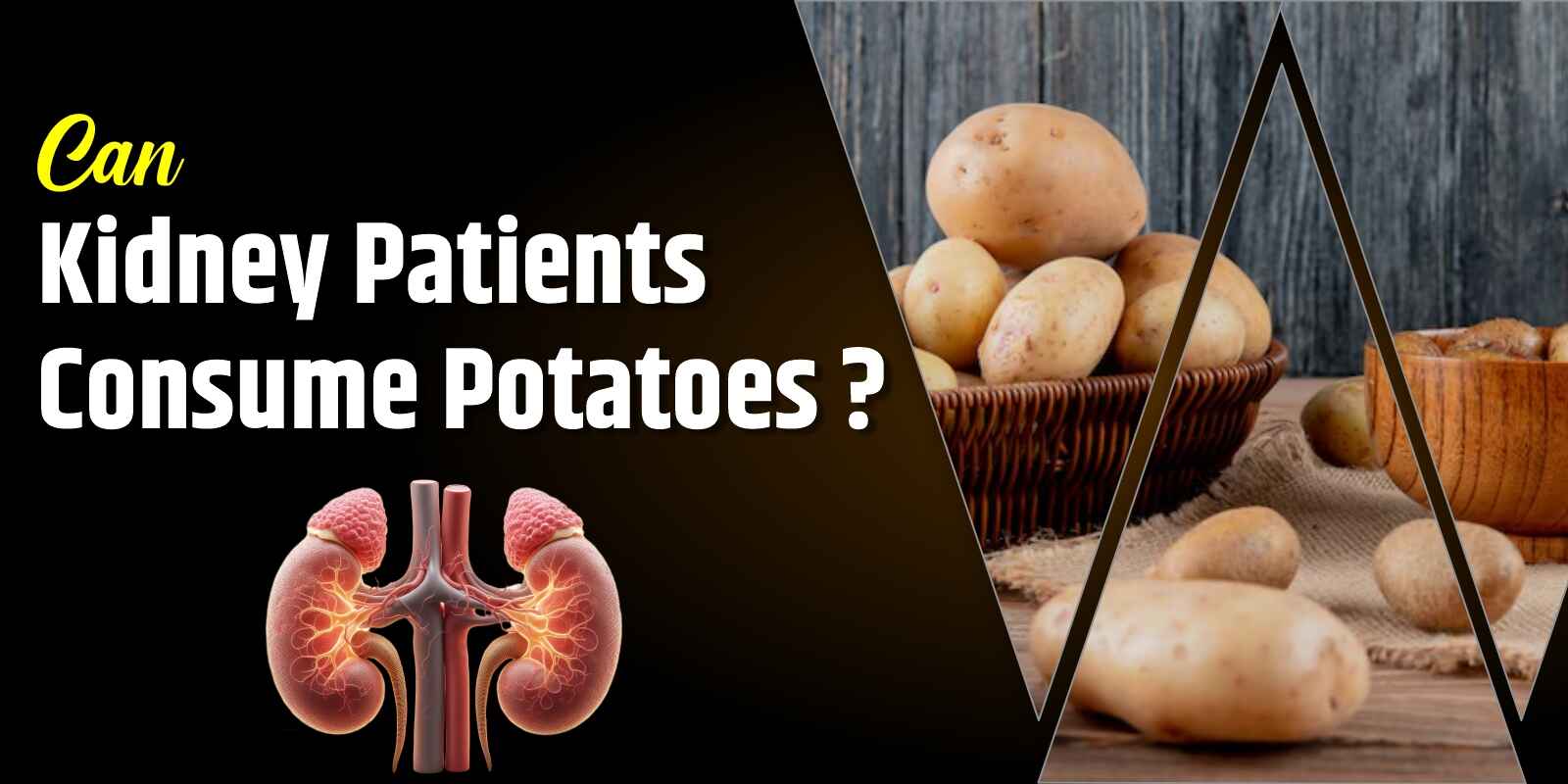
Kidneys are one of the most important organs of our bodies. They have the all-important task of filtering our blood so that clean, filtered blood is transported to different parts of the body. Apart from filtering blood, kidneys also play a vital role in the production of red blood cells in the body. By producing a compound called Renin, kidneys also help regulate blood pressure and they also help produce vitamin D in the body. One question that bothers renal patients is, “Can kidney patients consume potatoes?” This article will try to answer this question in detail.
Before answering questions such as, “Is boiled potato good for kidney patients?”, you must know a bit about potatoes. Potato is a starchy root veggie that is native to the Americas. They are a rich source of vitamin C and have ample nutrients. Potato is also rich in potassium which aids in the workings of our cardiovascular system. In fact, they have a higher potassium content than bananas. Potato skin is rich in fiber that helps in the smooth working of our digestive system.
As mentioned in the paragraph above, potatoes are a rich source of potassium. If you are a renal patient, then your nephrologist must have advised you to stay away from potassium-rich foods. A high concentration of potassium in the body negatively impacts your renal system. That is why, potatoes are often not recommended to renal patients, especially if your renal damage is on the higher side.
Now, one technique that has often been recommended to renal patients if they want to include potatoes in their daily diet is by boiling them. Double-cook is one of the most popular techniques where you reduce the content of potassium in potatoes. This technique involves stages such as peeling, cutting, or shredding the potatoes. Then you boil them and drain the water. After that, you need to add fresh water and boil the potatoes again till they get tender. Studies have shown that you can reduce the potassium content of a 100-gram portion of potatoes to below 200 mg. However, you must always consult with your nephrologist before you include potatoes in your diet.
Usually, mashed potatoes are not advised for renal or CKD patients. Though you can reduce the potassium content of potatoes by double boiling them, mashed potatoes are still not considered suitable for renal patients. You can go for sweet potatoes, as their potassium content is lower than potatoes. You can easily replace mashed potatoes with mashed cauliflower. This dish is not only delicious but is low in potassium and rich in nutrients such as vitamin K, folate, fiber, antioxidants, and anti-inflammatory compounds.
Let’s assume you have a renal disorder and you love potatoes. Now, this is a tricky situation to be in as potatoes are high in potassium. If you are still bent upon including potatoes in your daily diet, then there are cooking ways through which you can reduce the potassium content in the potatoes.
To cook potatoes for kidney disease, you need to:
Ayurvedic treatment for renal disorders often makes use of specific Ayurvedic herbs like Punarnava, Gokshur, Ashwagandha, etc. These natural herbs are extremely potent and they thoroughly treat our renal disorders. Additionally, Ayurvedic treatment also utilizes the powers of Panchakarma and other healing therapies to thoroughly treat these renal disorders. Dietary and lifestyle modifications are also an integral part of Ayurvedic treatment of renal disorders. For example, consuming less salt and animal-based protein, including more fiber in your diet, etc. are some of the dietary modifications that are recommended to renal patients.
Conclusion
Potatoes, though rich in nutrients and good for health, may not be the ideal food for renal patients due to their high potassium content. If you still want to include potatoes in your daily diet, double-cooking them, reducing their potassium content, and consuming potatoes in moderation are ways through which you can savor this delicious vegetable.
"Ayurveda is not just a system of medicine; it's a way of life. Connect with us to embrace a lifestyle that nurtures your body, mind, and soul."

Certificate no- AH-2023-0186
JAN 05,2023-JAN 04,2026